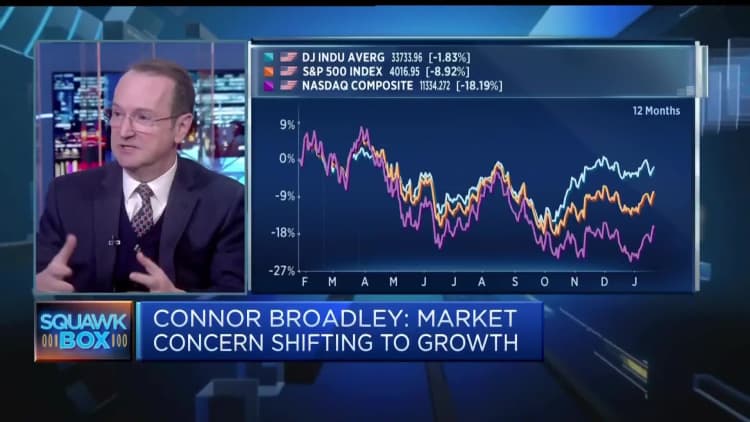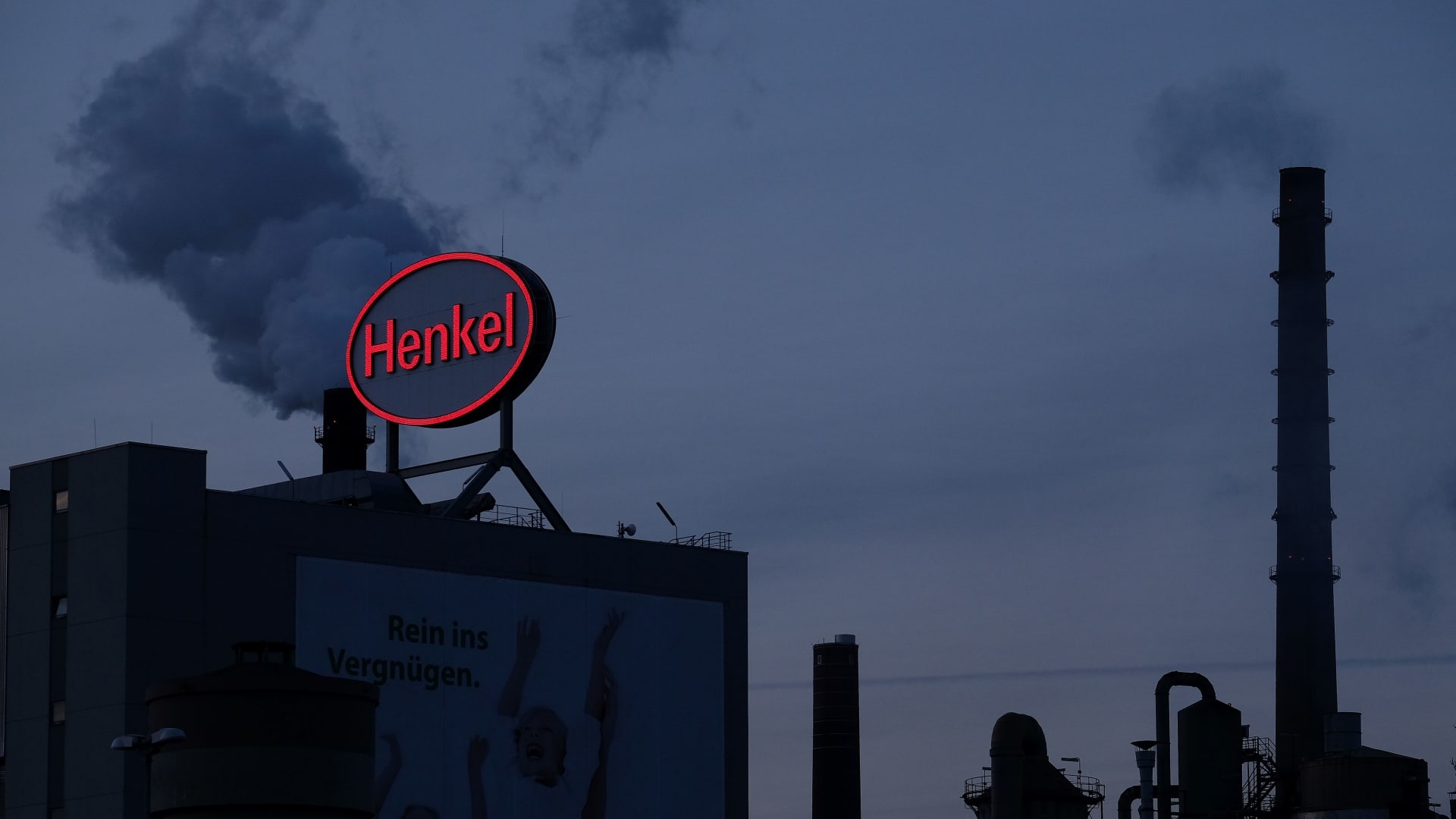The brand of German client chemical substances big Henkel could be seen on the firm’s plant in Duesseldorf, western Germany, on January 18, 2016.
PATRIK STOLLARZ | AFP | Getty Photos
After Russian troops invaded Ukraine in February 2022, corporations throughout the G-7 main economies and the European Union introduced plans to stop enterprise operations in Russia.
But by the tip of the 12 months, only a few had totally delivered on that promise, in accordance with new analysis from Switzerland’s College of St. Gallen.
The report printed earlier this month documented a complete of two,405 subsidiaries owned by 1,404 EU and G-7 corporations that have been energetic in Russia on the time of the primary army incursion into Ukraine.
By November 2022, fewer than 9% of that pool of corporations had divested a minimum of one subsidiary in Russia, and the analysis workforce famous that these divestment charges barely modified over the fourth quarter of 2022.
“Confirmed exits by EU and G7 companies that had fairness stakes in Russia account for six.5% of whole revenue earlier than tax of all of the EU and G7 companies with energetic business operations in Russia, 8.6% of tangible fastened belongings, 8.6% of whole belongings, 10.4% of working income, and 15.3% of whole staff,” professors Simon Evenett and Niccolo Pisani wrote.
“These findings imply that, on common, exiting companies tended to have decrease profitability and bigger workforces than the companies that stay in Russia.”
Extra U.S. companies have been confirmed to have exited Russia than these primarily based within the EU and Japan, Evenett and Pisani famous, however the report nonetheless discovered that fewer than 18% of U.S. subsidiaries working in Russia have been utterly divested by the tip of 2022, in contrast with 15% of Japanese companies and simply 8.3% of EU companies.
Of the EU and G-7 corporations remaining in Russia, the analysis discovered that 19.5% have been German, 12.4% have been American owned and seven% have been Japanese multinationals.
“These findings name into query the willingness of Western companies to decouple from economies their governments now deem to be geopolitical rivals,” Evenett and Pisani wrote.
“The research’s findings are a actuality examine on the narrative that nationwide safety considerations and geopolitics is resulting in a basic unwinding of globalisation.”
Stress to exit will construct
Europe’s standing as a laggard within the push for Russian divestment was additionally highlighted by Barclays in a notice on Jan. 20.
The British lender’s European client staples analysts stated that whereas many of the corporations they cowl had pledged to exit Russia, partly in response to ESG-related stress from stakeholders and the specter of sanctions, few have managed to take action but. Numerous corporations instructed Barclays that there was a number of challenges to completely divest.
“Along with the dearth of readability over what belongings there could be price, the record of potential patrons is brief, and the record of potential patrons who’re sanction exempt is even shorter,” Barclays analysts famous.
“There have additionally been recommendations that the belongings (together with mental property) of corporations that go away Russia shall be nationalised.”
Barclays instructed that with no finish to the battle in sight, the disconnect between pledges and outcomes will should be resolved, and can pressure corporations into some robust selections.
“If exiting Russia at something approaching a good valuation is very difficult (if not outright unimaginable), then the selection going through corporations is whether or not to exit at an unfair valuation (or certainly for nothing in any respect), or stay in Russia,” the analysts stated.

“Few commentators appear to assume a close to time period finish to the battle is probably going, and we suspect stress to make good on pledges to exit might construct as time goes on.”
They added that corporations which have paused promoting and lowered product assortments however nonetheless intend to remain in Russia shall be more and more challenged by wider stakeholders and tightening sanctions.
Particularly, Barclays named CCH, Henkel, PMI, JDE Peet’s and Carlsberg as having the biggest gross sales publicity to Russia inside the European client staples sector.
Henkel has repeatedly said its intention to exit Russia and been clear with the funding neighborhood on the probably impression, since round 5% of gross sales and 10% of EBIT (earnings earlier than curiosity and tax) are derived from Russia. Barclays’ Henkel forecasts assume no contribution from Russia for full-year 2023 and past.
“Whereas nation stage EBIT knowledge is difficult to return by, we assume that given that almost all corporations have stopped promoting in Russia, it’s at the moment disproportionately worthwhile,” Barclays stated.
“Henkel has been express concerning the probably impression to earnings of a Russia exit (5% gross sales, 10% EPS) and this ought to be well-known to traders, however we suspect that Russia deconsolidation could also be a supply of margin combine headwind elsewhere in Staples.”
Of the 29 client staples companies the unit covers, 15 have dedicated to exiting Russia, however Barclays analysts are solely conscious of six which have truly performed so.
Henkel, CCH, Carlsberg, JDE Peet’s and PMI didn’t reply to CNBC’s request for remark.
‘Writing off is not promoting off’
A brand new report from a U.Okay. assume tank final week highlighted that a number of the world’s greatest corporations have introduced their deliberate exists by writing off belongings somewhat than promoting them, thereby making “bulletins of accounting entries as a substitute of creating Russian exits.”
“Many individuals assume that when one thing is written off it has been misplaced. A write-down or write-off simply means the proprietor has put a decrease or zero worth on an asset at that cut-off date. It’s a paper worth that may be revised at any second on the whim of the proprietor,” stated Mark Dixon, a London-based mergers and acquisitions advisor who based the Ethical Scores Company assume tank in February following the Russian invasion.
“If the corporate drags its heels lengthy sufficient and would not go away Russia, it might probably write up the worth at any time when the world scenario modifications.”

